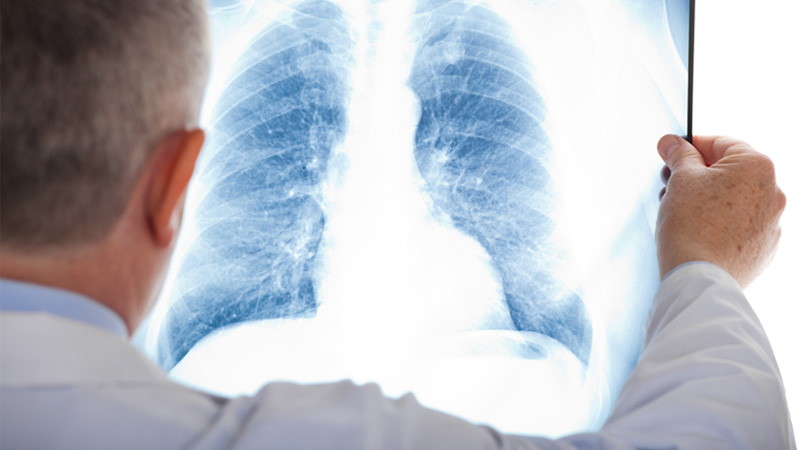When it comes to future-proof stories like digital health and artificial intelligence (AI) it's worth visiting the UK government website these days, sayes //next-columnist Markus Sekulla. The NHSX, a task force within the UK National Health Service, works on an improvement of COVID-19 diagnosis with the help of AI to tell from the first X-ray images whether the patient may end up in a critical condition.

AI can simplify and accelerate many processes. Here at //next, we have also dedicated a category to these developments, as there are a lot of cool and noteworthy cases. The AI that can detect COVID-19 infection by coughing on the phone comes to mind. The development that I am describing today goes in a similar direction, i.e. an improved diagnosis of COVID-19. So let’s see this text here as the second part of the Lovestory "AI and Corona".
The NHSX, a task force within the UK National Health Service, has collected 40,000 CT scans, MRIs and X-rays from more than 10,000 patients (from the UK) for the foundation of the AI. These were collected during the course of the pandemic and are now being made available by the agency to all hospitals and universities for diagnostic purposes. To ensure that the treasure of images is also used for better diagnostics, work is underway on an image analysis AI that could be able to quickly and accurately compare and analyze arriving patients in the hospitals presenting COVID-19 symptoms.
AI diagnosis is expected to work very well, especially in early stages of COVID-19 disease, and is able to tell from the first X-ray images whether the patient may end up in a critical condition. This can influence medical intervention in the early stages. Plus, in days of high hospital utilization, it could serve as a strong tool to better plan patient care.
Whether the AI diagnosis will still be used in the current Corona pandemic remains open in the UK government's press release. And actually, we all hope that the pandemic will be over as soon as possible. Feeding and training the AI with data should not be the problem, but rather the official approvals for a diagnosis. However, let’s look at the bigger picture here and see that other diseases such as heart disease or cancers could be treated with similar AI diagnostics in the future.
Admittedly, the technology is not as mind-blowing as detecting COVID from a cough on the phone, however, it could have a greater impact on the healthcare industry in the future. One might see the development of the technology as something of a trailblazer for healthcare, which could increasingly incorporate AI diagnostics in the future. And that would be great news.
Click here to read the press release: https://www.gov.uk/government/news/ai-at-the-forefront-of-efforts-to-treat-coronavirus-patients
Text: Markus Sekulla
Most popular